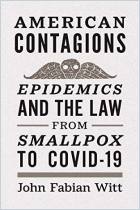Join getAbstract to access the summary!

Join getAbstract to access the summary!
Nancy Leys Stepan
Eradication
Ridding the World of Diseases Forever?
Reaktion, 2019
What's inside?
Learn how and why disease eradication matters to public health, and why it has largely failed.
Recommendation
Professor emeritus of medical history Nancy Leys Stepan takes readers through the history of campaigns to eradicate diseases, and examines the value of these campaigns to public health. Her pragmatic approach details results that people achieved in relation to the time and resources they spent. Her information proves most useful for public health practitioners familiar with the science behind each particular case. Stepan emphasizes the complexity of disease transmission – and thus of eradication – as an approach to improving public health.
Summary
About the Author
Nancy Leys Stepan is a professor emeritus of medical history at Columbia University.


















Comment on this summary